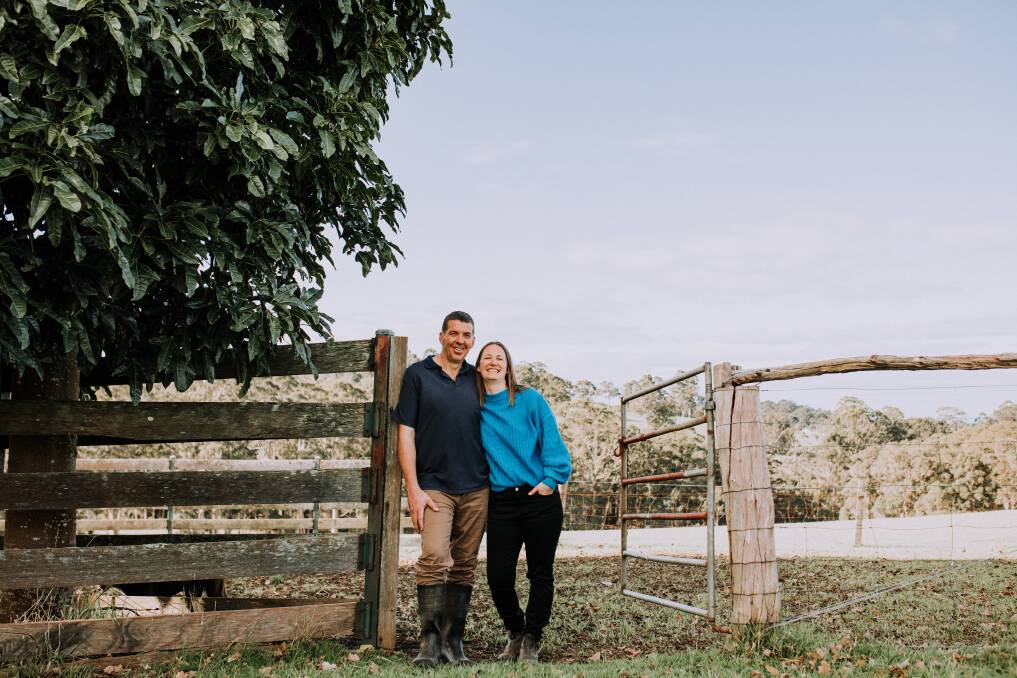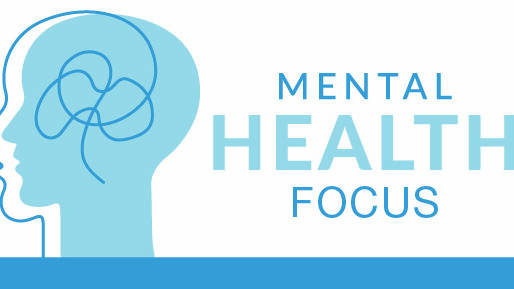
Denmark sheep farmer Louise O'Neill loves life on the land - the space, freedom and connection to Mother Nature.
That is not to say where she is now, with positive health and wellbeing, has always been that way.
About a decade ago, in a paddock during seeding, Ms O'Neill watched as her husband Warren hit rock bottom - it was the day everything changed.
Now the 2022 WA Agrifutures Rural Women's Award winner has combined her degrees in psychology, counselling and sports therapy, to help men and women in the bush to shift their mindset and challenge unhealthy paradigms through her business Farm Life Fitness.
Thinking back to that heartbreaking moment in 2014, Ms O'Neill still gets goosebumps.

With their first-born son Hamish on the way, it was a time they should have been at their happiest.
However, in reality, they were anything but that, as the workload of farming and other stresses finally came to a head.
"In the middle of seeding, our machinery suffered a breakdown and Warren did too," Ms O'Neill said.
"He literally fell to his knees in tears, right there in the paddock, and we didn't know where to go or what to do."
At the time, a heavily pregnant Ms O'Neill was battling her own demons on the verge of postnatal depression.
While she and Mr O'Neill were very much together, they were also worlds apart.
"That image of Warren and me in the paddock, feeling lost, burnt out and helpless will probably stay with me forever," she said.
"If seeing your husband reach that point does not inspire you to make a change, I don't know what will.
"No job should expect a person to work 24 hours a day, seven days a week and farming should be no exception, but unfortunately it is the norm.
"In addition to this unhealthy expectation and subsequent vulnerabilities, rural communities have limited to no access to essential services that improve mental, emotional and physical wellbeing - it really is a recipe for disaster.
"That is a lack of social connections and movement, complex family relationships and the stigma surrounding mental health all build up and create stress and feelings of being overwhelmed."
And so, out of her own "personal storm", Ms O'Neill founded Farm Life Fitness, a platform which provides accessible, evidence-based fitness, health and wellness solutions for those working and living in rural Australia.
Farm Life Fitness challenges the conventions preventing people in agriculture from having a happier, healthier and more productive farming lifestyle.
It also provides people with a place to talk, connect, change and realise they need to take a step back to push forward.
Drawing on her lived experience and taking a look at the challenging times being faced by WA's agricultural sector, Ms O'Neill said it was important for people to identify their baseline for tolerance by checking in on themselves, reflecting on any changes in their routine, mood or eating habits and recognising whether or not they were OK.
For someone, who perhaps has a routine in movement or exercise, this could be that they are making excuses and feeling demotivated because it is not their priority.
In others it could be that they have become disengaged or disconnected, when they would normally make a conscious effort to call or socialise once a week.
That is not because they do not have time, but because they simply "cannot be bothered".
Or maybe they have had a change in moods or a shorter fuse than normal and are taking it out on those closest to them.
"Reflecting on how you act in a normal time compared to a stressful time is a really good indicator, as to how you are feeling," Ms O'Neill said.
"I think if people are not as motivated in certain parts of their life that they would normally be, are disconnected, have low tolerance and are not giving back to themselves, that is a massive sign that they are maybe not travelling so well."
She said keeping a journal was a healthy way people could clear their mind, process thoughts, feelings and insights, and reflect.
"It may seem like a simple tool, but even if people can write just a few things down, it can perhaps help them to understand why they are feeling the way they do.
"They can take a step back and realise, 'OK I have a lot going on and this is probably why I am not where I normally am'.
"I encourage self awareness, which I know is difficult in an overwhelming time."
Separately, Ms O'Neill said if people noticed any changes in the behaviour or mood of others then they could ask the questions:
"How are you? What's been happening?"
She acknowledged the person asking this question may not be mentally or emotionally in a space to listen to that person, which was absolutely OK.
'You don't always have to be the one that offers advice," Ms O'Neill said.
"You can be there for that cup of tea or a completely different non-pressurised conversation, and that doesn't mean you don't care.
"I think there needs to be that level of self-preservation as well - don't put pressure on yourself to have all the answers, but be there in whatever capacity you feel comfortable."
Ms O'Neill said it was also important people looked after and were mindful of their own mental health while caring for others.
She reiterated it was not being selfish or not because you don't care, but knowing what you were capable of.
"Switching yourself off and having a breather from everything that's going on isn't a bad thing," Mr O'Neill said.
"You don't necessarily have to talk all the time to connect with others.
"Don't get me wrong, it is great to talk and I am a big advocate for that, however it can work both ways.
"You can be there for each other in completely different ways, other than lending an ear and trying to come up with a solution."
Ms O'Neill said social events were a great opportunity to connect with people and were valuable for mental health and wellbeing in rural, regional and remote communities.
She said they were a good opportunity to switch off from the everyday stresses and again talk about something completely different.
"Whether it is a community event, sport, a bonfire or facilitated workshop - I know my cup is instantly filled by getting off the farm, where I may feel like there's no escape," she said.
"You can radiate energy onto each other, gain a different perspective and also realise you are not alone and others are perhaps feeling the same way.
"We are all human, it is innate in us to be socially connected, it is what we work towards and strive for all the time, and it doesn't matter if you are connecting with one person or 100."
Ms O'Neill has experienced an increase in the number of people signing up for Farm Life Fitness' one-on-one and group services, purely for the social connection and sense of community.
She said online platforms and technology were a way to breakdown barriers of loneliness or disconnect, and believes her lived experience has helped farmers realise they are not alone.
Her advice for farmers was to consider what their biggest onfarm income was.
While the first answer for many may be crops or livestock, she said it was easy to forget that health was actually wealth.
"My tag line is 'step back to push forward' - stepping back and taking a breather will actually increase our productivity both personally and professionally," Ms O'Neill said.
"It should always be about prevention rather than cure: put the work in now so you are maintaining positive physical and mental health rather than working to recover from poor physical and mental health.
"Ask yourself why you place more value on ensuring the health and longevity of your machinery over yourself.
"If you know you want to put some healthy habits in place, start small and build up - one per cent improvement everyday is achievable and worthwhile."
If you need someone to talk to, you can contact:
1300 555 788 (Metro) or 1800 676 822 (Peel) or 1800 552 002 (Country/Rurallink)
13 11 14
Text: 0477 13 11 14
1300 224 636
1300 659 467
08 9381 5555 (main line) 08 9388 2500 (Youth Line) or 1800 198 313 (Country Toll Free)
1300 789 978


